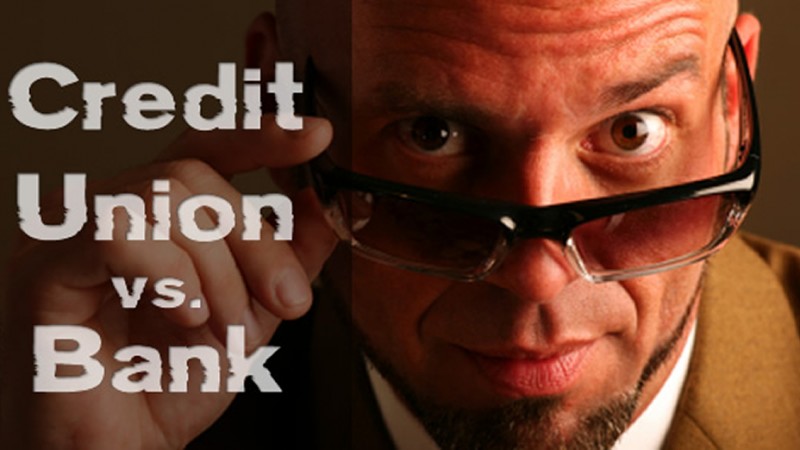What's the Difference in a Bank and a CU?
- Details
- Written by Will from Holland
- Category: Modules

Both credit unions and banks offer similar financial products and services, like checking and saving accounts, car or personal loans, mortgages and credit cards, but there are some major differences in how they operate.
But since the FoolProof team is made up of consumer advocates, and since FoolProof receives some funding from credit unions, we don't think it's fair of us to tell you what we think are the differences in credit unions and banks. Our opinion would definitely be very different than some other opinions.
And remember: consumer advocates can be as biased as anyone else.
You Decide
So it's your job to decide which opinion seems most accurate to you.
One thing banks and credit unions agree on, however, is this one difference in banks and credit unions:
-
Banks are profit-making companies owned by stockholders.
-
Credit unions are not-for-profit businesses owned by their members.
We believe most for profits companies have a business module to grow and maximize business, not care for you, per se. Sure, they’ll be nice to you, but they main purpose is to sell.
We believe that's true whether they get a checking account or a credit card at a bank, get a car loan from a dealership, or buy a gadget somewhere. If you don't know how to negotiate, you pay more. If you don't have unbiased information, you can get the wrong product or service.
Even the most honest for profit companies look out for themselves before they look out for you.
FoolProof believes that a good credit union doesn't work that way. A good credit union helps you find ways to spend less and spend wisely. The opposite approach of virtually any other bank.
It's in the interest of a good credit union to help its owners to conserve money and make wise decisions.
Why would credit unions do this? Doing the right thing is always nice. But more importantly, credit unions aren't for profit. They don't have stockholders. Credit unions are financial cooperatives. Join one and you are an owner. And a credit union won't survive unless its owners make smart financial decisions.
That said, not all credit unions are good. Many large credit unions operate quite similarly to regular banks out there. Make money on the people that use their products and services.
It’s up to you which financial institution fits best with your financial needs. Whether that is a small or big credit union, or even a bank, you have to do your research and decide which one is right for you.
If you want more details, dive in:
As said, because credit unions are "not for profit," they don't pay taxes, and can therefore at times offer products and services at a reduced rate. And the banks don't like that fact one bit, of course.
-
In fact, many banking groups spend a lot of time trying to stop the growth of credit unions and force them to pay taxes.
Here's an overview of the American Bankers Association (ABA): "Credit Unions Issue Update". -
Banks also make a very strong case for their role in providing consumers products and services.
For instance, here's a good summary of that role. -
Banks also host many excellent financial education efforts.
Here's an overview. -
Credit Unions say they have a very different role than banks.
Here's what they say makes them different. -
Credit unions also offer lots of financial education.
Aside from FoolProof, which is only offered through credit unions and other not-for-profits, here's an overview."CUNA" represents most credit unions like the ABA represents most banks
The FoolProof Team believes that most consumers at one time or the other should maintain a relationship with a credit union and a bank.
Do Your Own Research
But to help you decide which is right for you now, do your own research! Use the web to search for articles on the differences in banks and credits unions.
Here are some good topics to search:
- "Banks vs. Credit Unions"
- "Credit Unions vs. Banks"
- "Comparing Credit Unions and Banks"
- "Comparing Banks and Credit Unions"
Remember what we have said in virtually all the FoolProof modules?
You are the person in charge of your financial life, and you are responsible for the consequences of your decisions.
So, make your decision on your first financial partner a thoughtful decision. Since both banks and credit unions offer virtually the same products and services, your decision needs to be based to some degree on which will do the most for you as you start your financial life.
Good luck!














